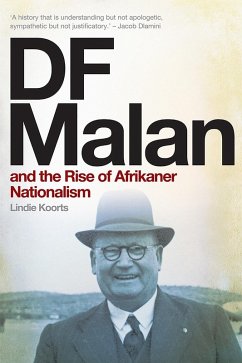In 1948 the Dutch Reformed minister D.F. Malan led the National Party to victory and set up the policy of apartheid. Today grimfaced photographs of NP leaders like Malan and his successors have come to symbolise a system of racial oppression.
Yet, when Malan was asked on his deathbed what he considered the most important service he had rendered during his political career, he answered, 'that I could serve my nation; that I could unite my people'. This biography tries to understand this contradiction: how a man who earnestly sought to build a nation could also contribute to a legacy that continues to scar a country.
Malan's personal and political life developed against the backdrop of the rise in Afrikaner nationalism in the years following the South African War. To understand Malan the man is also to understand the people who elected him as their leader.
Yet, when Malan was asked on his deathbed what he considered the most important service he had rendered during his political career, he answered, 'that I could serve my nation; that I could unite my people'. This biography tries to understand this contradiction: how a man who earnestly sought to build a nation could also contribute to a legacy that continues to scar a country.
Malan's personal and political life developed against the backdrop of the rise in Afrikaner nationalism in the years following the South African War. To understand Malan the man is also to understand the people who elected him as their leader.
Dieser Download kann aus rechtlichen Gründen nur mit Rechnungsadresse in A, D ausgeliefert werden.









